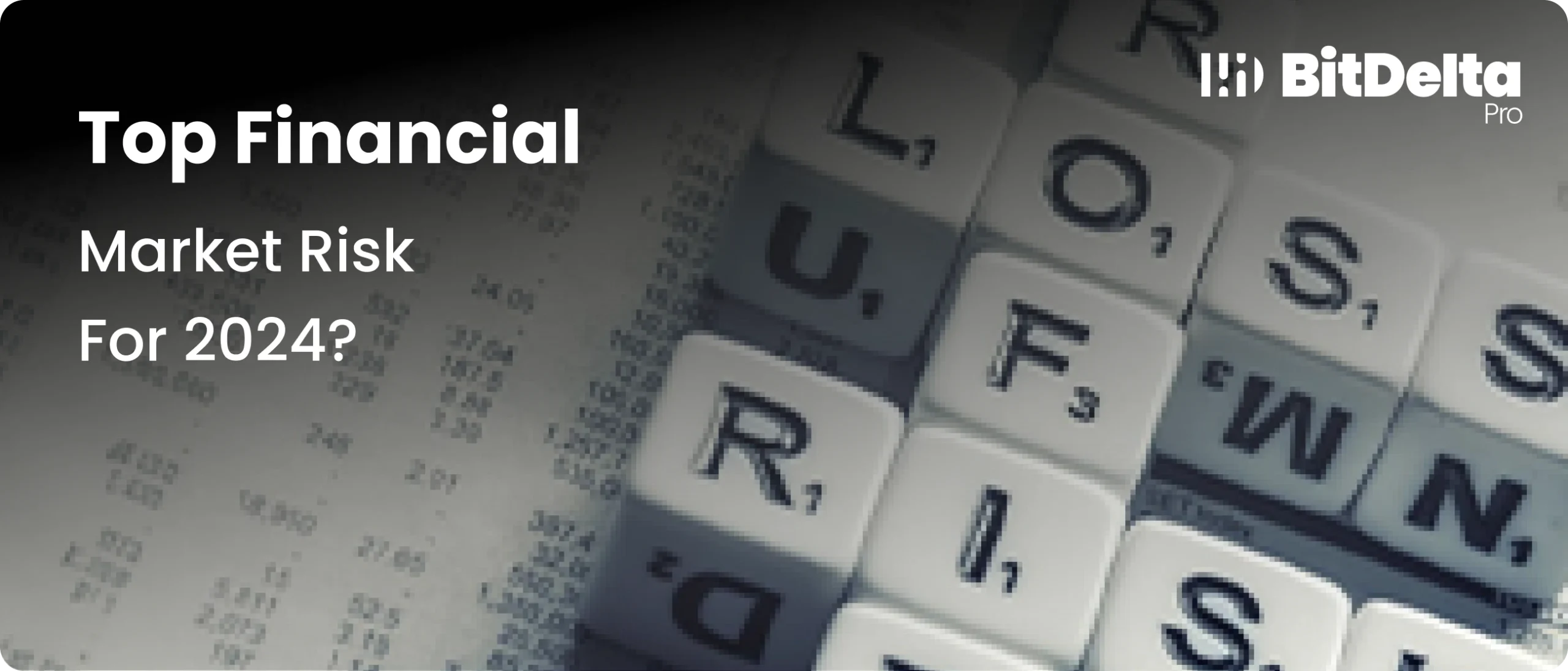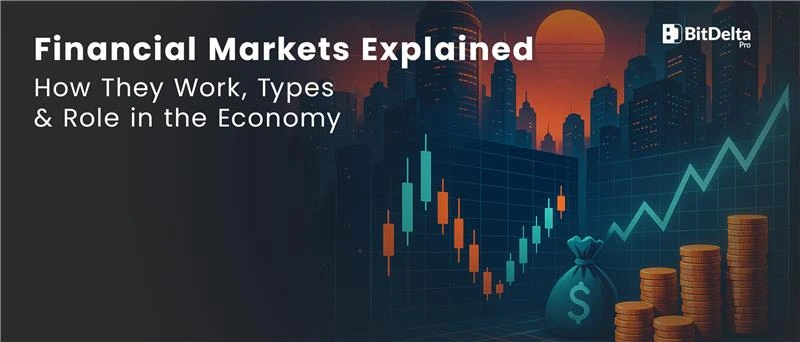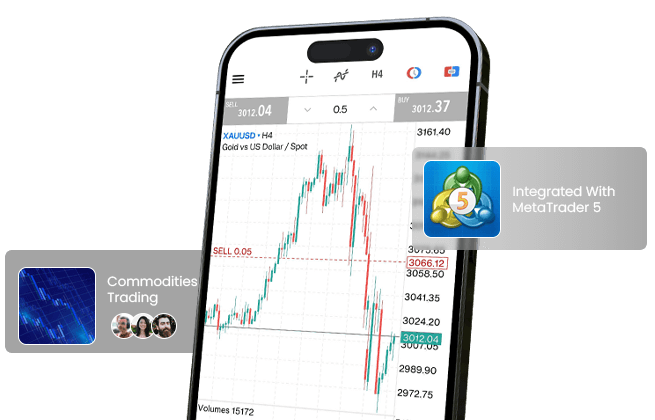Top Financial Market Risks for 2025
5 MIN READ
Team BitDelta Pro • 06 Nov 2024

In 2021, the global economy started recovering from the pandemic recession. However, a few global financial market risks remain.
Key Takeaways
- The financial markets are recovering from the coronavirus recession, although many risks remain.
- The main financial market risks are inflation, geopolitical conflicts, and uncertain election results.
- Central banks have lowered interest rates as inflation eases, with both US Federal Reserve and Bank of England cutting rates in recent months.
Top Financial Market Risks for 2025
The financial markets in 2025 have been beset with various risks, including inflation, geopolitical tensions, and a slew of elections. Below, we will discuss the different types of risks in financial markets and possible ways investors can address them.
Inflation Rate to Spike Again
Inflation in the US has fallen to 2.4%, gradually approaching the 2% target, while in the UK it has fallen to 1.7%, below 2% for the first time in over three years. Despite inflation having eased since the pandemic-led volatility, the risk of a resurgence in the near future remains. However, the International Monetary Fund (IMF) warned of rising financial market risks even though “the global battle against inflation has largely been won”. The central banks need to be vigilant to further bring an end to inflation, the Fund noted.
However, the risk of rising inflation, particularly among low-income countries, remains. Inflation is another financial market risk that could again threaten global economy. Central banks have lowered interest rates as inflation eases, with the US Federal Reserve and Bank of England cutting rates in recent months. However, a renewed spike in inflation could prompt more rate hikes, impacting economic growth and investor activity.
Market Volatility
Volatility measures the extent to which an asset’s price deviates from its average. High volatility leads to wider price ranges and sudden price swings, creating turbulence in the market.
Thus, the general public is not left with disposable funds to enthusiastically participate in markets. Such a situation is very volatile, and risk sharing in financial markets, i.e., risks are proportionally distributed amongst all the participants, can address it.
The Potential Decline of Overvalued Tech Companies
The rapid rise of tech stocks has driven strong equity market returns thanks to the AI boom and transformative tools like OpenAI’s ChatGPT. Leading tech companies—Alphabet, Amazon, Apple, Meta, Microsoft, Nvidia, and Tesla—have all demonstrated extraordinary growth due to the adoption of AI technology. This has led to a high concentration of the tech sector in the equity market. Many experts reasonably wonder whether the hype around AI justifies—or inflates—tech company valuations. When Nvidia reported its financial results for Q2 2024 in late August, the market was hardly impressed with the company’s revenue estimate of $32.5 billion for the next quarter. The company’s stock fell around 9% following the result.
Many tech companies have been unable to leverage AI to significantly increase their revenues. If the tech companies are overvalued, it could indeed be a case of a tech bubble that could potentially burst. A potential tech bubble burst would pose a terrible risk to the entire market, as the sector has become dominant. Traders need to keep a close watch.
Election Surprises
In 2024, 40 countries accounting for 42% of global GDP will hold elections, including three of the five largest economies: the US, Japan, and India.
- United States: The US Presidential election will be held in early November. The incumbent Democratic Party, led by Kamala Harris, will be challenged by the Republican Party, led by Donald Trump. Inflation and immigration are the most important issues for voters. Depending on the election results, it could shift subsequent economic policy in the world’s largest economy.
- Japan:The general election in Japan will be held towards late October, with the main opposition party, the Constitutional Democratic Party of Japan (CDPJ), set to challenge the ruling Liberal Democratic Party (LDP). Inflation and corruption are some of the key concerns for voters.
- India: Under the leadership of Prime Minister Narendra Modi, the right-wing Bharatiya Janata Party (BJP) managed to score its third victory in a row. However, the party lost its majority in this election. Though the country’s economy became the fifth largest in the world under Modi’s tenure, the issues of inflation, unemployment, and income inequality continue to tag along.
- United Kingdom: In the UK, the incumbent Conservative Party, led by Prime Minister Rishi Sunak, lost the election to the Labour Party led by Keir Starmer. Experts attribute the loss of Conservatives to their poor performance on key economic issues such as inflation, cost of living, healthcare, housing, and education. Most experts do not anticipate any major re-evaluation of any country’s current economic policy, regardless of the election results. But we should always be ready for unpredictable decisions.
Bottom Line
If these financial market risks could be addressed successfully, markets could improve further. However, concerns remain that inflation, volatility, and election effects will prevent them from returning to pre-pandemic levels.
The only way forward is for investors to be prepared beforehand with a detailed plan to deal with market risks. One strategy is to leverage risk management practices. Depending on how the situation is handled, we can anticipate steady market growth for the next few months. For that to happen, regulatory bodies, asset issuers, trading exchanges, and institutional and retail investors must demonstrate resilience and be willing to cooperate.
DISCLAIMER
This communication is for informational and educational purposes only and should not be construed as financial, investment, or legal advice. BitDelta Pro does not guarantee the accuracy, completeness, or timeliness of the information provided. Trading in traditional securities (such as forex currency pairs, stocks, bonds, and commodities) carries inherent risks, including potential loss of principal. Users are encouraged to carefully evaluate their financial objectives, conduct their own research, and seek independent financial advice before making any trading decisions. BitDelta Pro is not liable for any losses or damages resulting from actions taken in response to this communication.
Register an Account
Start your trading journey and explore limitless trading opportunities

Sign up today and gain access to global markets!
Register Now



;?>)